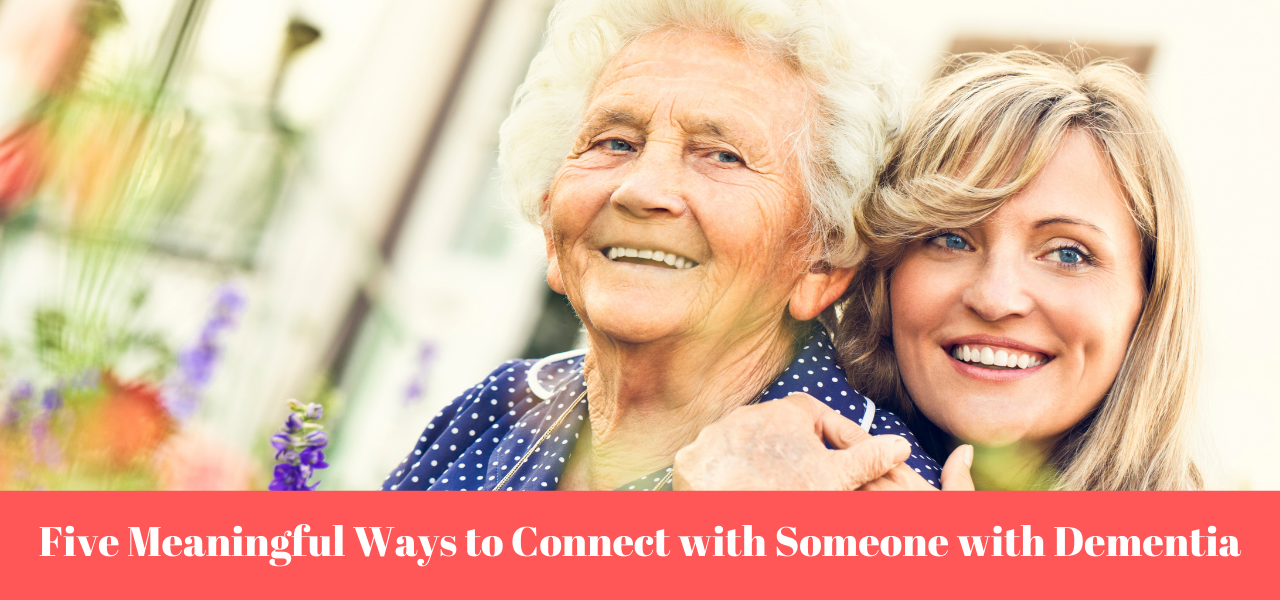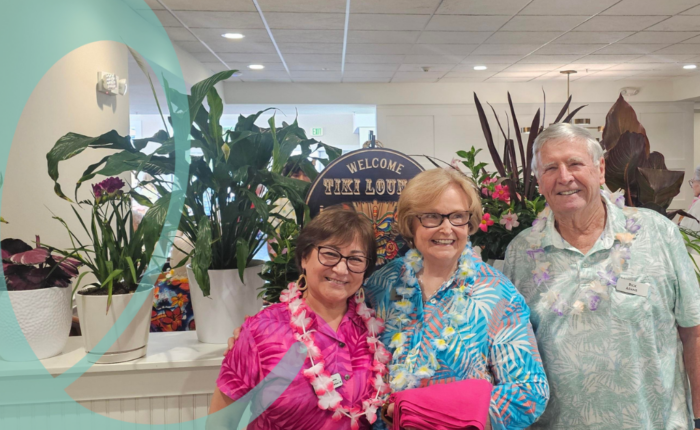
- Our Communities
- View Comments
- MacKenzie Place - Fort Collins
July 30 marks International Friendship Day, a day to celebrate the value and meaning of friends in our lives. Declared by the United Nations to be July 30, many countries also have their own National Friendship Day, which is August 2 in the United States. Learn more about celebrating International Friendship Day and developing friendships with someone who has dementia.
The Importance of Friendship to Someone with Dementia

Think about the last time you made an immediate connection with a colleague, neighbor, or friend. It’s comforting to find a friend who shares a similar background, food, quirk, or hobby. It’s no different for someone with dementia. Every human wants to feel connected to the people around them. At MacKenzie Place – Fort Collins, we believe that although a friendship with someone who has dementia may look and feel different, it can still exist. And, not only can it exist, but these meaningful connections play a huge role in the health of your loved one.
Research shows that although someone with dementia may not remember names and faces, they can remember emotional experiences and how they felt. A 2014 study found that people with Alzheimer’s disease can experience prolonged states of emotion that last well beyond their memory of the events that caused those emotions. The bottom line? Your interactions with your loved one with dementia matter – even when it seems like it doesn’t.
5 Tips for Communicating with Someone who has Dementia
So, how do we stay connected when dementia progresses, and communication becomes difficult? These tips can help you cultivate and maintain lasting connections with loved ones who have dementia, allowing for change and flexibility as the disease progresses.
1. Know that your presence matters.
Perhaps the most important thing about maintaining and cultivating a relationship with someone who has dementia is knowing that your communication and friendship can make a difference. It can be easy to believe that your relationship does not matter because your loved one does not recognize you or react to your presence. However, research has shown that people with dementia remember emotional experiences more than events. Your relationship still matters, and you can still impact the quality of their life.
2. Accept them as they are.
Your friend with dementia may be struggling to find the right word for something, may misremember facts, and ask repetitive questions. As their friend, know that this is part of the disease, and correcting them may result in frustration and can be damaging to your relationship. Instead, accept them as they are, even as the disease progresses, and let the details go, knowing that dementia will impact their communication.
3. Speak to them as your friend.
Although you may have to slow your speech and perhaps repeat yourself, your friend is still an adult and deserves to be spoken to with respect and kindness. Avoid speaking down to them or treating them like a child, especially in the early stages of the disease. Avoid ‘baby talk’ in all stages. People with dementia can detect tone in all stages of the disease, so talk with your friend just like you would like someone to speak with you.
4. Use humor and music as creative ways to communicate.
When words stop working, let jokes and music do the talking. Many people with dementia react to music from their younger days as it activates a different part of the brain. Create playlists with their favorite songs, and tell their favorite jokes. Not only will it engage your friend, but it will also help them feel known.
5. Non-verbal communication is still communication.
Engaging the five senses is a great way to create connections with someone who has dementia. From body language to meals, holding hands, and hugs, there are thousands of ways to show someone you care about them without using words. Explore nonverbal communication to continue developing your friendship, even as dementia progresses.
Opal Memory Care at MacKenzie Place – Fort Collins
 MacKenzie Place – Fort Collins has an innovative memory care community in Fort Collins, CO, based on Teepa Snow’s Positive Approach to Care and GEM Levels. We know what every person longs for community, and we provide a partnership for families going through a dementia diagnosis while also giving people with dementia engaging and meaningful actives and programming.
MacKenzie Place – Fort Collins has an innovative memory care community in Fort Collins, CO, based on Teepa Snow’s Positive Approach to Care and GEM Levels. We know what every person longs for community, and we provide a partnership for families going through a dementia diagnosis while also giving people with dementia engaging and meaningful actives and programming.
Contact MacKenzie Place – Fort Collins today to learn more about our independent living, assisted living, and memory care programs and how our caring staff can help your family restore balance in your relationship with a loved one who has dementia.
How do you stay connected with your loved one who has dementia? Share your ideas and experiences in the comments below. We’d love to hear from you!
Find a Leisure Care Community
Better with age, exceptional with us! Come and see how Leisure Care communities are helping seniors rediscover (and sometimes reinvent) themselves.






